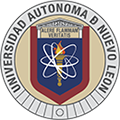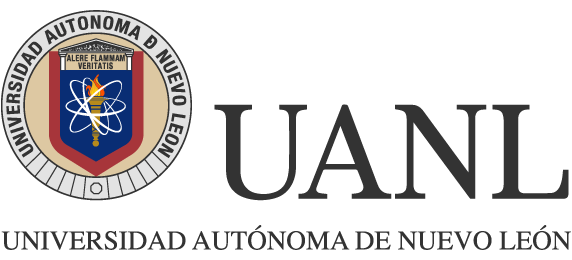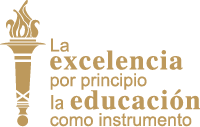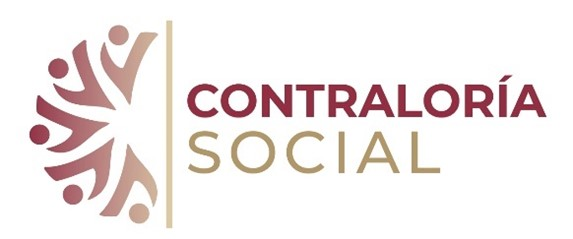Share:
Bachelor of Clinical Biochemistry
School of Medicine
Admission profile
The candidate must have the following skills:
Knowledge
- Candidates should have an aptitude and interest in natural and exact sciences, including biology, chemistry, physics, and mathematics. Additionally, familiarity with information technologies and proficiency in English are desirable.
Skills
- Strong observation and analytical abilities, practical application of knowledge, manual dexterity, teamwork and independent work skills, a cooperative mindset, and a keen interest in scientific research. Candidates should also be methodical, curious, and analytical, with a passion for applying science and technology to solve community problems and a commitment to continuous self-improvement.
Attitudes
- Self-respect and respect for teachers and classmates, a spirit of service, tolerance, resilience under stress, a strong sense of commitment and solidarity, as well as objectivity, responsibility, and honesty.
Admission requirements
Academic
Have successfully completed high school or equivalent studies.
Legal
Meet all criteria established by UANL current standards and procedures.
Testing
The student must take the UANL entrance exam, which includes the EXANI-II Selection Module and the Health Sciences Diagnostic Module.
Program-specific
Once selected, the student must:
a)Submit psychometric test
b) Take a placement test in English
c) Attend the induction course
Graduation profile
The Clinical Biological Chemistry graduate is a health sciences professional with a strong scientific, technical, and humanistic foundation. They are socially responsible, globally competent, and capable of applying their knowledge, skills, and attitudes to work independently, collaboratively, and interdisciplinarily to address health-related challenges.
They implement, develop, and validate methods for clinical and chemical analysis in various biological, environmental, and food matrices. They understand clinical laboratory indicators that distinguish between health and disease and can interpret results that support diagnoses and decision-making. Additionally, they manage laboratory quality within the legal framework, always demonstrating a deep respect for the environment.
Furthermore, graduates are proficient in applying the scientific method to generate knowledge and solve problems in their field. They can provide consulting services, conduct training courses, and deliver lectures. They also contribute to fostering a responsible and sustainable society by integrating into public or private institutions or pursuing entrepreneurial endeavors.
To achieve this graduate profile, the educational program defines the general and specific competencies to be developed, along with potential career opportunities.
General skills
Instrumental
- Apply autonomous learning strategies across different levels and fields of knowledge to make timely and relevant decisions in personal, academic, and professional contexts.
- Use logical, formal, mathematical, iconic, verbal, and non-verbal communication effectively, according to their stage of life, to understand, interpret, and express ideas, emotions, theories, and perspectives with an inclusive approach.
- Manage information and communication technologies to access, process, and transform information into knowledge, facilitating learning and collaborative work through advanced techniques that promote constructive societal participation.
- Demonstrate proficiency in their native language, both orally and in writing, with accuracy, relevance, timeliness, and ethical considerations, adapting their message to the context to communicate ideas and scientific findings effectively.
- Employ logical, critical, creative, and proactive thinking to analyze natural and social phenomena, enabling responsible and well-informed decision-making within their sphere of influence.
- Communicate clearly and accurately in a second language, preferably English, in everyday, academic, professional, and scientific contexts.
- Develop interdisciplinary, multidisciplinary, and transdisciplinary academic and professional proposals based on global best practices to foster and strengthen collaborative work.
- Apply both traditional and cutting-edge research methods and techniques to enhance academic work, professional practice, and knowledge generation.
Personal and interpersonal skills
- Demonstrate commitment and respect for diverse social and cultural practices, fostering inclusion at local, national, and international levels to promote peaceful coexistence.
- Address contemporary societal challenges with a critical mindset and a strong human, academic, and professional commitment, contributing to general well-being and sustainable development.
- Uphold the values promoted by UANL—truth, equity, honesty, freedom, solidarity, respect for life and others, peace, environmental responsibility, integrity, ethical behavior, and justice—in both personal and professional settings to help build a sustainable society.
Comprehensive Competencies
- Develop innovative proposals based on a holistic understanding of reality to help address the challenges of an interconnected global environment.
- Exercise leadership that is responsive to social and professional needs, driving meaningful and relevant social change.
- Effectively resolve personal and social conflicts using appropriate academic and professional techniques to support sound decision-making.
- Adapt to the uncertainties of today’s social and professional landscapes, contributing to improved living conditions.
Specific skills
- Apply knowledge of the chemical composition and physicochemical properties of matter to analyze biological, environmental, and food matrices and determine analytes.
- Perform physical, chemical, and biological procedures for the collection, handling, storage, and analysis of samples, ensuring reliable clinical, toxicological, chemical, food, forensic, and environmental diagnoses.
- Handle chemical and biological materials in compliance with Mexican and international regulations to ensure proper use and disposal, protecting both health and the environment.
- Validate bioanalytical methods based on established performance criteria to ensure the reliability of results in chemical-biological samples.
- Integrate new analytical methodologies that enhance the functionality, efficiency, and environmental sustainability of laboratory processes to address health sector needs.
- Interpret analysis results based on established criteria to support timely and informed decision-making in clinical, toxicological, chemical, food, forensic, and environmental diagnostics.
- Ensure the reliability of analytical results by applying quality control guidelines in accordance with laboratory policies, enabling accurate decision-making.
- Manage resources effectively by implementing quality management systems to ensure proper laboratory functioning and continuous improvement.
Labor market
Graduation requirements
Academic
Complete and earn a total of 224 credits, including mandatory social service.
Exceed the required number of elective credits within the Integral Professional Training Curricular Area, if desired.
Legal
Those established by the regulations and procedures in force at UANL.
Program-specific
Take the EGEL-MG exam administered by CENEVAL and pass the Final Clinical Competencies Exam.
Complete the Seminar for Professional Practice.
Provide proof of participation in comprehensive training activities.
Demonstrate proficiency in a foreign language through official certification or competency assessment.
Accreditations
National
Name
CIEES Level 1
Accreditor
Interinstitutional Committees for the Evaluation of Higher Education
Accreditor's acronym
CIEES
http://www.ciees.edu.mxValidity of accreditation
August 2020
National
Name
Accreditors that belong to the Council for the Accreditation of Higher Education (COPAES)
Accreditor
National Council for the Accreditation of Chemistry Studies
Accreditor's acronym
CONAECQ
http://www.conaecq.org/Validity of accreditation
December 10th, 2020
Location
Posted by: Dirección del Sistema de Estudios de Licenciatura





